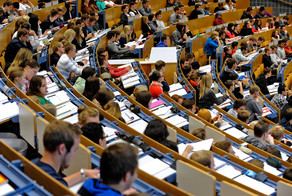M. Sc. Jonas Habicht
Machine Learning for Accessing PC-SAFT Parameters for Solvation Modeling
Process simulation plays a key role in improving or developing efficient and sustainable processes. Thermodynamic models (e.g. PC-SAFT, UNIQUAC) included in process simulators offer a detailed description of complex mixture properties. Within this project, we develop a predictive ML-approach to obtain required model parameters from data-driven methods of machine learning (ML).
Description
Application of last generation thermodynamic models (e.g. PC-SAFT) usually requires experimental pure-component data for parameter fitting. This leads to significant challenges especially for long-chain or complex molecules (e.g. pharmaceuticals). During recent years, ML-methods (e.g. neural networks, support vector machines, random forests) present powerful tools to describe non-linear complex relationships from a data-driven perspective in the field of thermodynamics [1, 2]. As an approach to link classical thermodynamics with ML-algorithms, this work aims at the development of a predictive ML-based approach to estimate both pure component [3] and binary interaction parameters of PC-SAFT equation of state. This will be done via the determination of suitable (molecular) descriptors combined with already existing data to access these targets.
References
| [1] | F. Jirasek, R. Alves, J. Damay, R. Vandermeulen, R. Bamler, M. Bortz, S. Mandt, M. Kloft, H. Hasse: „Machine Learning in Thermodynamics: Prediction of Activity Coefficients by Matrix Completion” Journal of Physical Chemistry Letters, 2020, Vol. 11, 981-985 |
| [2] | J. Ding, N. Xu, M. Nguyen, Q. Qiao, Y. Shi, Y. He, Q. Shao: “Machine learning for molecular thermodynamics” Chinese Journal of Chemical Engineering, 2021, Vol. 31, 227-239 |
| [3] | J. Habicht, C. Brandenbusch, G. Sadowski: „Predicting PC-SAFT pure-component parameters by machine learning using a molecular fingerprint as key input” Fluid Phase Equilibria, 2023, Vol. 565, 113657 |







